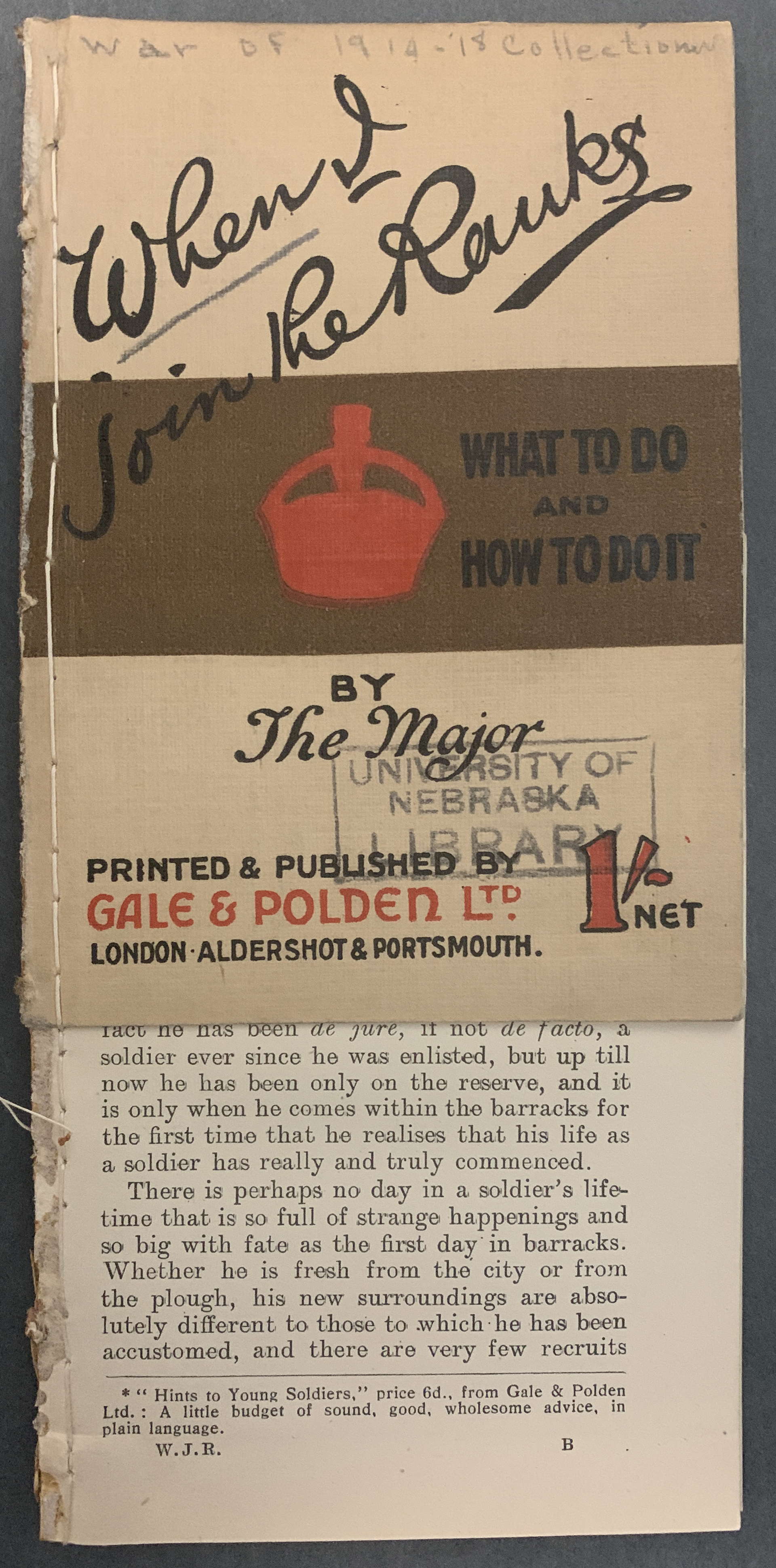
On November 17, the Osher Lifelong Learning class “World War I Propaganda: How to Beat Ploughshares into Swords” met in Archives & Special Collections to examine pamphlets created during World War I. Taught by Argosy University professor emeritus and Olli member Wil Hass, the class considers how nations used mass communication to generate and maintain public support for the war. The visit to Archives & Special Collections provided a hands-on opportunity to learn from and compare pamphlets produced by various countries.
Preparing for the class, Hass said, “Looking at the pamphlets brought back good memories from 63 years ago.” He first worked with the pamphlets in 1958 as a Libraries student employee tasked with typing catalog cards. At that time, the pamphlets were bound together in volumes based on their size and alphabetical order. Except for the frustration of encountering a few items bound in the wrong order, he fondly recalls his hours of work in the Social Sciences reading room and the satisfaction of typing an entire drawer of catalog cards. Although it is only one of his experiences as a student worker, Hass’ work with the pamphlets made such a lasting impression he “stopped off to see about the pamphlet collection” when he returned to Nebraska after retirement.
The collection consists of more than 1600 pamphlets produced for immediate and widespread consumption rather than long-term use. Now unbound, the fragile pamphlets are protected by individual, custom-fitted housing, and ongoing cataloguing is creating a record for each item in the collection.
Researchers interested in military and wartime history or propaganda may find additional useful resources in our manuscript collections. For a look at posters from World War I, visit our digital exhibit Great Posters of the Great War.